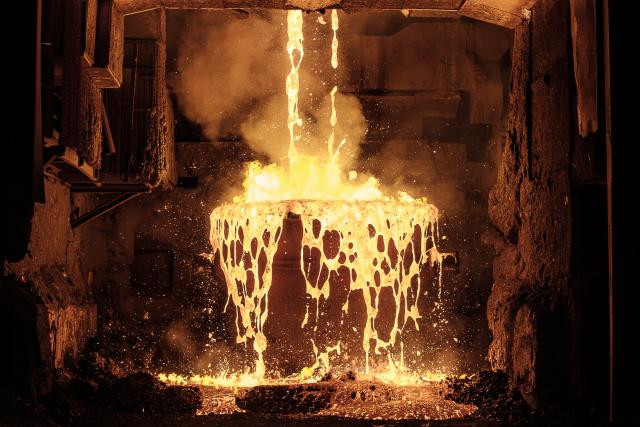EU policy makers, member states, industry and trades unions must show solidarity in the face of the US’ tariffs on steel and aluminium. The US tariffs are the wrong approach to dealing with the global overcapacity problem in steel.
“We are facing another crisis, triggered by President Trump’s invocation of Section 232. The 25% tariffs across the board present a real threat. Not only for the EU and global steel industries, but also to the global trading system and the value chains that derive from it”, said Geert Van Poelvoorde, President of Eurofer.
President Van Poelvoorde was speaking at a press conference organised by Eurofer but with the participation of member state government ministers, representation from European Trade Unions, and from the steel and aluminium industries.
“Europe will suffer through increased imports, or trade deflection, since it is a reasonable assumption that the imports deflected by the US will seek a home in Europe. The EU already saw 40 million imports land in 2017, which was a new peak. This is in fact higher than the 35 million tonnes that arrived in the US. Eurofer estimates that section 232 could lead to a further 13 million tonnes coming to Europe – and this is a conservative estimation”, emphasised President Van Poelvoorde.
Commissioner Malmström met with US Trade Representative Robert Lighthizer on Saturday to discuss how the EU and US can work together to solve this crisis, though no resolution has emerged from that meeting.
President Van Poelvoorde added, “Given the potentially significant impact, the European steel industry clearly requires robust defence arrangements, and Eurofer fully supports the European institutions in considering all legitimate options to address the threat”.
“The challenge we face today ultimately has its roots in the global overcapacity the industry continues to wrestle with. It is more crucial than ever that governments act decisively to address the root causes of global excess capacity. This includes the elimination of capacity and market distorting subsidies and government support measures worldwide, pursued in the framework of the Global Forum on Steel Excess Capacity.”, stated President Van Poelvoorde.
“It is important to stress that the steel industry is not seeking anything more than free and fair, rules-based trade. The US helped create this current system of rules-based trade and we very much hope this is the system they will sustain”, concluded President Van Poelvoorde.
